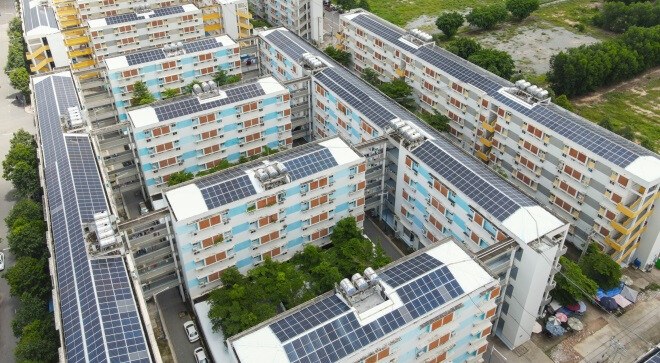
The Politburo of Vietnam recently announced a major overhaul of its social housing policy. According to a conclusion issued on July 25, the Politburo and the Secretariat have directed the Central Committee of the Communist Party to instruct the government to research and institutionalize a pilot mechanism and special policies for social housing development. A key focus is the expansion of eligibility for purchasing and renting social housing.
This directive follows the National Assembly's decision in May to allow provinces and cities to establish their own criteria for social housing eligibility, tailored to their specific local conditions. The goal is to address the practical difficulties faced by workers who are currently excluded from social housing support because they own a home in a rural area, even if they work in a city or industrial park. This aims to resolve the issue of many workers not meeting eligibility requirements simply because they own a home within the same province.
Currently, eligibility for social housing is limited to revolutionary contributors, families of martyrs, poor and near-poor households in rural areas, low-income and poor/near-poor urban households, and workers inside and outside industrial parks. This also includes officers, non-commissioned officers, professional soldiers, public security officers, civil servants, defense civil servants, non-civil servants, civil servants performing public duties, students with educational loans, people whose homes have been demolished due to land appropriation, and companies and cooperatives within industrial parks.
In addition to social housing policy, the Politburo's conclusion includes several administrative and institutional improvements. Specifically, the Ministry of Finance was directed to issue guidelines for budget use and office allocation, and to promptly promulgate financial and accounting regulations. It also requested an evaluation and report on the transfer and management of public assets and government offices at all levels.
The Ministry of Home Affairs and local governments were instructed to review the status of civil servants responsible for ethnic and religious affairs, ensuring that national and religious affairs management officials are assigned to positions that match their rank, ability, and expertise. Guidelines for establishing business units under the commune-level People's Committees, especially those providing essential public services, must also be issued promptly.
The Politburo and the Secretariat also demanded that administrative procedures be made fully transparent to the public and businesses, and that legal difficulties and bottlenecks be fundamentally resolved by 2025. Six ministries—the Ministry of Home Affairs, Ministry of Finance, Ministry of Construction, Ministry of Industry and Trade, Ministry of Health, and Ministry of Agriculture and Environment—must collaborate to improve and finalize procedures related to public services such as construction permits, alcohol and tobacco business licenses, medical and pharmaceutical practice licenses, and policies for revolutionary contributors.
The Ministry of Construction and the Ministry of Agriculture and Environment are required to promptly issue specific guidelines for adjusting land use plans and post-relocation plans. Both ministries must also re-evaluate the decentralization of authority in the land sector from the provincial to the commune level, ensuring feasibility by considering available resources and personnel.
The Ministry of Education and Training has been directed to provide guidance on management authority for teachers, administrative staff, civil servants, and workers, as well as the structure of civil servants by position and rank, and staffing standards for educational facilities. These comprehensive measures, including the expansion of social housing supply, aim to streamline the overall administrative system and improve the quality of life for the people.
[Copyright (c) Global Economic Times. All Rights Reserved.]






























